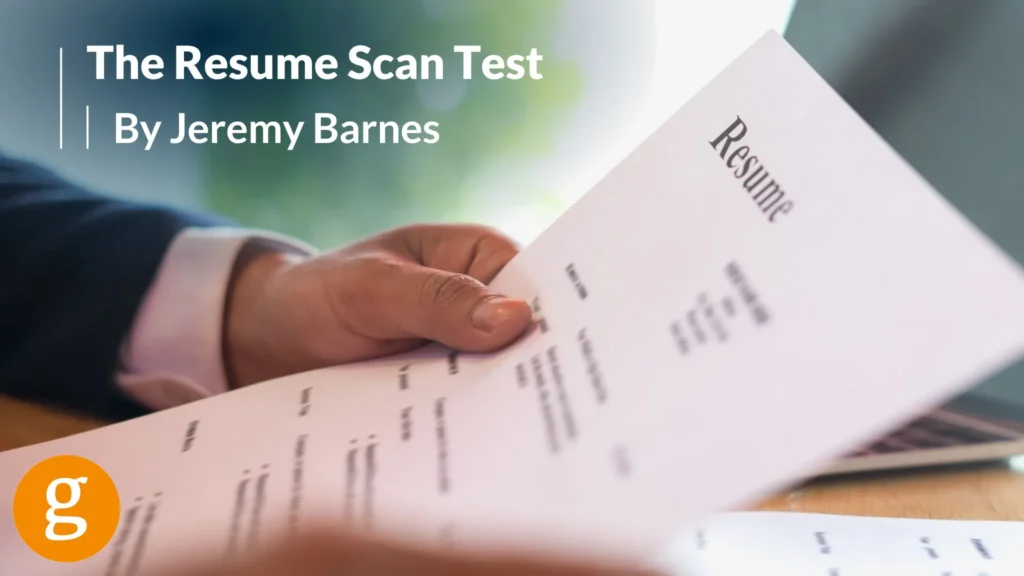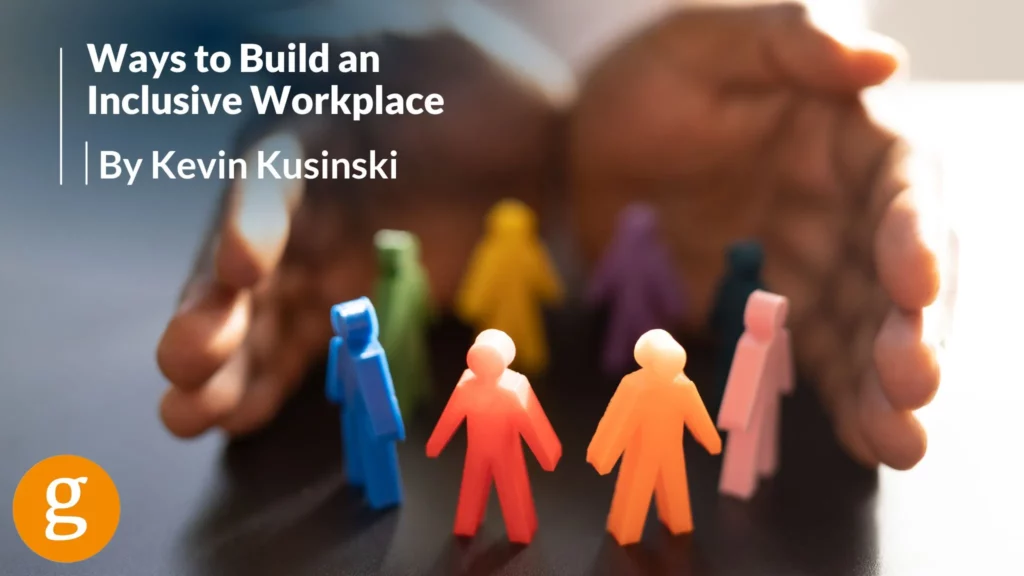Ban-the-Box Laws: What They Mean for Employers and Job Candidates
Goodwin Recruiting | Career Tips, Hiring Advice, Industry News | November 17, 2022

Most U.S. states, along with counties and cities nationwide, have adopted what are known as Ban-the-Box Laws or policies that prohibit employers from asking about a job applicant’s criminal history or arrest record on a job application, and more specifically, not until later in the hiring process. The laws are meant to ensure employers can evaluate a job applicant’s qualifications first, without a criminal record detracting from their candidacy or influencing the employer’s consideration or employment decisions.
Why do they call it that? The name of the law indicates the elimination of the ‘check box’ on employment applications that asks job seekers if they have ever been arrested or convicted of a crime. However, most ban-the-box laws involve a lot more than removing a check box from job applications. See more on how the law applies below.
Is there a federal ban-the-box law? Yes, but it currently applies only to federal agencies and federal contractors. The Fair Chance to Compete for Jobs Act of 2019, or Fair Chance Act (FCA), which took effect December 20, 2021, prohibits most federal employers or agencies and federal contractors from requesting that applicants for most jobs disclose information on arrest and conviction history before a conditional job offer is made to the applicant, essentially at the end of the hiring process. The law gives formerly incarcerated individuals a fair chance to compete for employment in or for the federal government.
On a broader scale, the law can have bearing on public employers and private employers, depending on the status in your state or area. Below are facts and considerations that both employers and job candidates should know about the law and the job application process. Employers need to be sure they comply and candidates need to protect themselves as they venture into the job market and interview process.
How does this law impact you as an employer?
The first thing to do, if you haven’t already, is find out if your state or area has a ban-the-box law in place. Here’s a good resource to identify ban-the-box laws by states, cities, and counties.
While it’s best to seek detailed legal advice and counsel from your legal team or an outside attorney who specializes in employment and hiring laws, following are some key things to know, whether you are subject to the law today…or potentially later…regarding asking criminal history questions of prospective employees during the job application and interview process.
How widespread are ban-the-box laws? Across the country, 37 states, the District of Columbia, and more than 150 cities and counties have adopted ban-the-box laws. Hawaii was the first state to pass ban-the-box laws in 1998. In 2014, research on the effect of Hawaii’s policies revealed that, “by mollifying the social stigma attached to a criminal record during the hiring process, Hawaii’s ban-the-box law proved to be extremely successful in attenuating repeat felony offending.”
According to the National Conference of State Legislatures, Hawaii’s policy affects all employers, as opposed to only public employers. Only 12 states and Washington, D.C., apply such laws to private employers. The remainder focus primarily on public employers with some variations.
Experts project the likelihood that the laws will soon pass in every state. Since your organization may have to comply with the law at some point, why not get the wheels in motion now, rather than be forced to adjust your job candidate application process down the road?
How does the law affect the hiring process? Depending on your location, and in addition to removing the check box from employment applications that asks job applicants to disclose criminal background information, ban-the-box laws may also:
- Determine when you are allowed to run a background check
- Require that you make a conditional offer of employment before asking candidates about criminal records
- Preclude you from considering previous criminal convictions when evaluating a candidate
- Outline how you should notify candidates about your criminal background check policies
- Require you to tell a candidate before or after taking adverse action, like rejecting their employment application
Additionally, since application of the law varies at federal, state, and local levels, some organizations may need to comply with the law in some states, but not others; comply with the law for some jobs, but not others; and comply with the law in some cities or counties that don’t have statewide ban-the-box laws.
Here are some additional considerations that can improve your hiring process and hiring decisions:
- Avoid asking questions on job applications and early in the interview process that create unconscious bias. Again, the essence of the law is to prevent a job candidate’s criminal history from dissuading employers from considering viable qualifications to perform a job.
- If you run criminal background checks, ask yourself if doing so is relevant to the criteria of the job.
- If you inform a candidate that you are running a background check, the key thing to look for is transparency. If a candidate is forthright with you that something will come up on a criminal background check, that’s what you’re looking for and their transparency has merit. If they’re trying to hide something, that’s where red flags arise.
How does this law impact you as a job applicant?
While job candidates have protections under ban-the-box laws, here are some solid recommendations for you to follow that can have a positive impact on your job application and job interview process, and give you a fair chance at landing your desired job:
- Always bear in mind what you choose to share on your social media pages – and how you share it. Be vigilant as well in what you share in social feeds from other people and organizations because you cannot control what is public versus private, today or in the future. Your own social media pages should be set to private, except for LinkedIn – which should be current and professional.
- Feel free to be transparent with your recruiter. At Goodwin Recruiting, we want to get to know you. The good, the bad, and the ugly, including anything you might be nervous about discussing with a potential employer, such as a criminal record. We also know which clients conduct background checks on job applicants and can help prepare you to talk about your particular situation to achieve the best outcome for you.
- Have a live conversation with a potential employer before a criminal background check is performed. You will be your own best advocate, so transparency is key. A brief description or summary is best, providing an overview of the offense and what occurred.
- If you’d like for your recruiter to inform an employer on your behalf, our team at Goodwin Recruiting can do that for you. Or, if you prefer to share information with a potential employer directly, we will honor your confidentiality. Either way, our recommendation is to share your background and keep your relationships transparent.
- If you’re qualified for a job, you’re qualified for the job! Have the confidence that you can rock this! And rest assured we will be standing beside you throughout the recruitment process.
Corporate America is taking initiatives beyond the law
Assisting job applicants whose criminal records pose a challenge during the hiring process is more than a law. It’s a movement! In July 2022, CNBC highlighted how corporate America, including companies in the public sector as well as private employers, are taking steps to help formerly incarcerated people and others with criminal records land good job opportunities.
Here are some excerpts:
- There are nearly 80 million Americans with a criminal record, according to the Bureau of Justice Statistics. Research published by SCBC shows that 85% of human resources executives and 81% of business leaders report that individuals with criminal records perform the same as, or better than, employees without criminal records. Further, the research shows they have lower turnover and stronger loyalty to their employers, an incredibly attractive quality amid rampant resignations.
- A growing number of companies, driven by social justice reform and the intense struggle to find talent, are participating in formal programs to help individuals with criminal histories re-enter or advance in the workforce.
- Next Chapter, founded by Salesforce subsidiary Slack, helps those with criminal records get technical training and mentorship to build careers in the tech sector.
- The Second Chance Business Coalition, spearheaded by JPMorgan Chase CEO Jamie Dimon and Eaton CEO Craig Arnold aims to increase the number of companies offering job opportunities to individuals with criminal records and prove that doing so is good for both society and the bottom line. Partners include Union Pacific, Best Buy, McDonald’s, Microsoft, PepsiCo, Target, and Walmart.
- Kenyatta Leal, executive director of Slack’s Next Chapter, said the biggest pushback he gets when speaking with companies about hiring people with criminal records is fear. His hope, and that of the other people involved in these programs, is that the opportunity to tap into this diverse talent pipeline will convince more companies to forge ahead and get involved. “It’s not just about giving someone a job,” Leal said. “It’s giving them a chance to remake their life, support their families and strengthen their communities. It’s good in so many ways.”
We want a better world for our clients and candidates
As humans, we all have some level of unconscious bias. Our goal at Goodwin Recruiting is to protect our job candidates, protect our clients, and do the right thing in every step of the talent recruiting and job application process. This means we make extended efforts to avoid unconscious bias in all that we do, and to serve as a trusted resource and partner for employers and job applicants who demand these values. If you’re looking for more information about ban-the-box laws or other equal employment opportunity laws, second chance hiring programs, and other effective methods to solve talent shortages, give us a call today.
Additional Resources:
Arrest and Conviction Records: Resources for Job Seekers, Workers and Employers – from the U.S. Equal Employment Opportunity Commission (EEOC)
‘Ban-the-Box’ Law Now Covers Federal Contractors
Share This Article






































